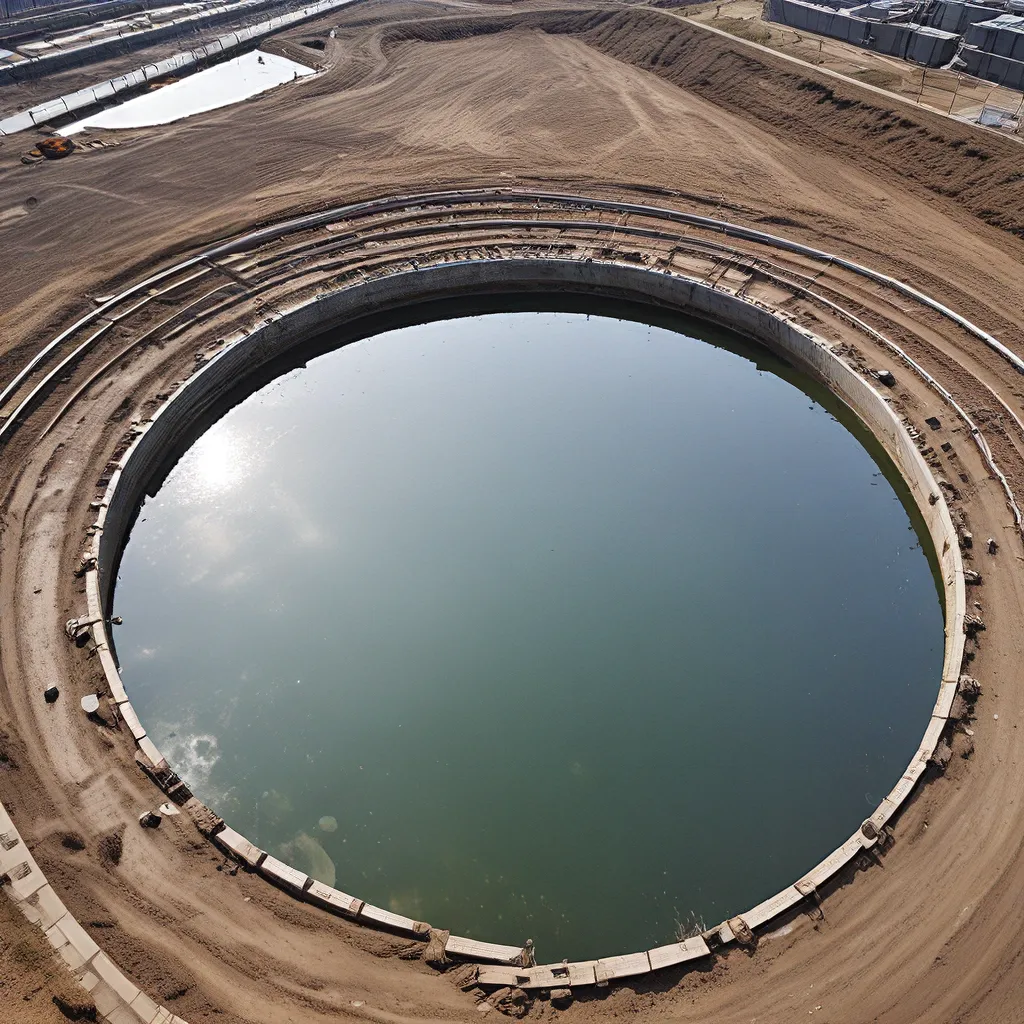
Unleashing the Power of Wastewater: From Burden to Boon
When it comes to wastewater treatment, the traditional mindset has often been one of necessity rather than opportunity. We’ve seen it as a costly task, a necessary evil to keep our communities and environments clean. But what if I told you that the tides are turning, and we’re on the cusp of a remarkable transformation in how we view and manage our wastewater resources?
Alpha Wastewater is at the forefront of this revolution, embracing the principles of the circular economy to turn wastewater from a liability into a valuable asset. By harnessing the power of innovative technologies and forward-thinking practices, we’re closing the loop on our water resources and creating a more sustainable future.
Biogas: Fueling the Future with Wastewater
One of the most exciting developments in the world of wastewater treatment is the rise of biogas as a renewable energy source. Through the process of anaerobic digestion, the organic matter in wastewater can be transformed into a clean-burning fuel that can be used to generate electricity, heat, or even power vehicles.
Stockholm’s wastewater treatment plants are a prime example of this approach in action. By capturing the biogas produced during the wastewater treatment process, they’re able to generate enough energy to power their own facilities, with surplus electricity being fed back into the grid. It’s a true closed-loop system, where the waste becomes the fuel, and the cycle continues.
But the benefits of biogas go beyond just energy production. The residual solids from the anaerobic digestion process can also be recovered and used as a nutrient-rich fertilizer, further closing the loop and creating a sustainable resource cycle. It’s a win-win-win scenario – cleaner water, renewable energy, and a valuable soil amendment.
Solar-Powered Wastewater Treatment: Harnessing the Sun’s Power
Another innovative approach to wastewater treatment is the integration of solar energy. By combining wastewater treatment with renewable power generation, we’re able to create a sustainable, self-sufficient system that reduces the overall environmental impact.
Take, for example, the Blue Plains Advanced Wastewater Treatment Plant in Washington, D.C. This facility has installed solar panels across its vast acreage, generating renewable energy to power the treatment process. Not only does this reduce the plant’s reliance on traditional fossil fuel-based electricity, but it also provides a shining example of how wastewater facilities can become active contributors to the clean energy transition.
The beauty of this approach lies in its synergistic nature. The wastewater treatment process provides the necessary land and infrastructure to host solar panels, while the renewable energy generation reduces the energy demands of the treatment operations. It’s a harmonious partnership that exemplifies the principles of the circular economy.
Extracting Value: Resource Recovery from Wastewater
But the circular economy revolution in wastewater treatment doesn’t stop at energy production. We’re also seeing resource recovery as a critical component of this transformative approach.
Scottish Water, for instance, has pioneered the recovery of valuable resources like phosphorus, nitrogen, and metals from the wastewater treatment process. These recovered materials can then be reused and recycled, reducing waste and providing a sustainable source of critical resources.
But it’s not just about recovering the obvious elements. Even something as seemingly mundane as grit can be transformed into a valuable commodity. Scottish Water has found a way to repurpose the grit extracted during wastewater treatment and sell it to the construction industry, further closing the loop and creating a more circular system.
Embracing the Circular Mindset
As we’ve explored, the shift towards a circular economy in wastewater treatment is not just about improving efficiency or reducing environmental impact. It’s about fundamentally rethinking our relationship with this vital resource.
By embracing the principles of renewable energy, resource recovery, and closed-loop systems, we’re not only cleaning our water but also creating a more sustainable and resilient future. It’s a paradigm shift that challenges us to see wastewater not as a problem to be solved, but as a valuable treasure trove waiting to be unlocked.
At Alpha Wastewater, we’re proud to be at the forefront of this circular revolution. We’re not just treating wastewater – we’re creating a new era of water stewardship, where every drop is precious and every resource is maximized.
Closing the Loop: The Path Forward
As we look to the future, the potential for wastewater treatment to play a pivotal role in the circular economy is only beginning to be realized. Ongoing research and innovation are uncovering new and exciting ways to extract value from this often-overlooked resource.
Some experts believe that we may even see the emergence of “water mining” – the targeted extraction of specific elements and compounds from wastewater streams, much like mining for precious metals in the ground. This could revolutionize the way we approach resource scarcity and sustainability, creating a new, renewable source of critical materials.
The journey towards a circular water economy is not without its challenges, but the rewards are immense. By closing the loop on our water resources, we can create a more resilient, sustainable, and economically viable future – one where wastewater is not just a problem to be solved, but a vital part of the solution.
So, as you flush your toilet or wash your dishes, remember that you’re not just sending waste down the drain. You’re contributing to a revolution in water stewardship, one that holds the promise of a cleaner, greener, and more prosperous world for all. Join us in this exciting journey as we redefine the role of wastewater in the 21st century.